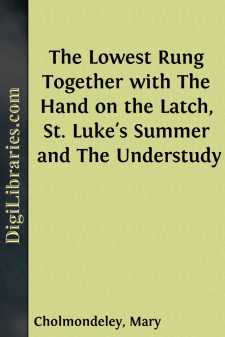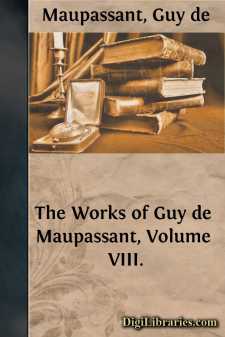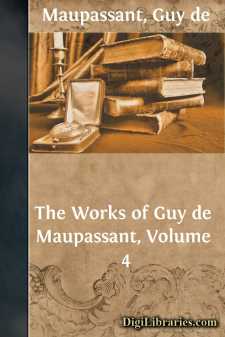Fiction
- Action & Adventure 180
- Biographical 15
- Christian 59
- Classics 6965
- Coming of Age 5
- Contemporary Women 3
- Erotica 8
- Espionage/Intrigue 12
- Fairy Tales, Folklore & Mythology 236
- Family Life 169
- Fantasy 117
- Gay 1
- General 596
- Ghost 32
- Historical 808
- Horror 43
- Humorous 160
- Jewish 25
- Legal 4
- Medical 22
- Mystery & Detective 315
- Political 49
- Psychological 41
- Religious 64
- Romance 159
- Sagas 11
- Science Fiction 730
- Sea Stories 113
- Short Stories (single author) 537
- Sports 10
- Suspense 1
- Technological 8
- Thrillers 2
- Urban Life 31
- Visionary & Metaphysical 1
- War & Military 173
- Westerns 199
Fiction Books
Sort by:
PREFACE I have been writing books for five-and-twenty years, novels of which I believe myself to be the author, in spite of the fact that I have been assured over and over again that they are not my own work. When I have on several occasions ventured to claim them, I have seldom been believed, which seems the more odd as, when others have claimed them, they have been believed at once. Before I put my...
more...
by:
Stacy Aumonier
INTRODUCTION When Edward J. O'Brien asked me to cooperate with him in choosing each year's best English short stories, to be published as a companion volume to his annual selection of the best American short stories, I had not realized that at the end of my arduous task, which has involved the reading of many hundreds of stories in the English magazines of an entire year, I should find myself...
more...
I.—HE INTRODUCES HIMSELF "In less refined circles than ours," I said to Myra, "your behaviour would be described as swank. Really, to judge from the airs you put on, you might be the child's mother." "He's jealous because he's not an aunt himself. Isn't he, ducksey darling?" "I do wish you wouldn't keep dragging the baby into the conversation; we...
more...
GUY DE MAUPASSANTA STUDY BY POL. NEVEUX"I entered literary life as a meteor, and I shall leave it like a thunderbolt." These words of Maupassant to Jose Maria de Heredia on the occasion of a memorable meeting are, in spite of their morbid solemnity, not an inexact summing up of the brief career during which, for ten years, the writer, by turns undaunted and sorrowful, with the fertility of a...
more...
"After all," Count d'Avorsy said, stirring his tea with the slow movements of a prelate, "what truth was there in anything that was said at Court, almost without any restraint, and did the Empress, whose beauty has been ruined by some secret grief, who will no longer see anyone and who soothes her continual mental weariness by some journeys without an object and without a rest, in...
more...
by:
Anatole France
In those days Balthasar, whom the Greeks called Saracin, reigned in Ethiopia. He was black, but comely of countenance. He had a simple soul and a generous heart The third year of his reign, which was the twenty-second of his age, he left his dominions on a visit to Balkis, Queen of Sheba. The mage Sembobitis and the eunuch Menkera accompanied him. He had in his train seventy-five camels bearing...
more...
The most robust and masculine of recent French novelists is a typical Norman, sprung from an ancient noble family, originally of Lorraine, but long settled in the Pays de Caux. The traveler from England towards Paris, soon after leaving Dieppe, sees on his left hand, immediately beyond the station of St. Aubin, a handsome sixteenth-century house, the Château de Miromesnil, on a hill above the railway....
more...
OF "THE NOVEL" do not intend in these pages to put in a plea for this little novel. On the contrary, the ideas I shall try to set forth will rather involve a criticism of the class of psychological analysis which I have undertaken in Pierre et Jean. I propose to treat of novels in general. I am not the only writer who finds himself taken to task in the same terms each time he brings out a new...
more...
The first aim of art, no doubt, is the representation of things as they are. But then things are as our eyes see them and as our minds make them; and it is thus of primary importance for the critic to distinguish the precise qualities of the eyes and minds which make the world into imaginative literature. Reality may be so definite and so false, just as it may be so fantastic and so true; and, among...
more...
Count Eustache d'Etchegorry's solitary country house had the appearance of a poor man's home, where people do not have enough to eat every day in the week, where the bottles are more frequently filled at the pump than in the cellar, and where they wait until it is dark before lighting the candles. It was an old and sordid building; the walls were crumbling to pieces, the grated, iron...
more...











